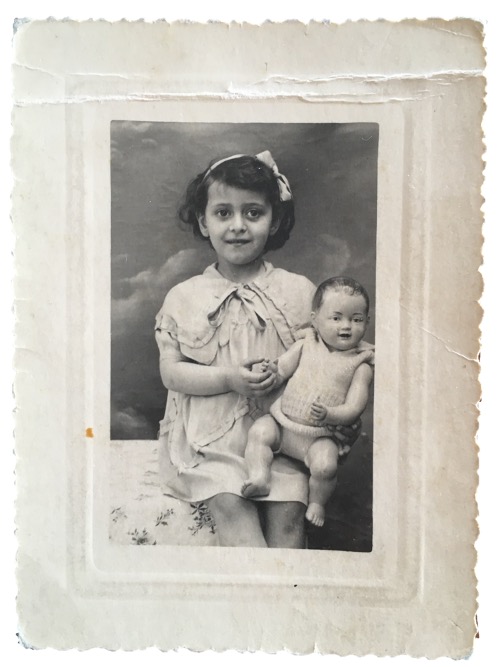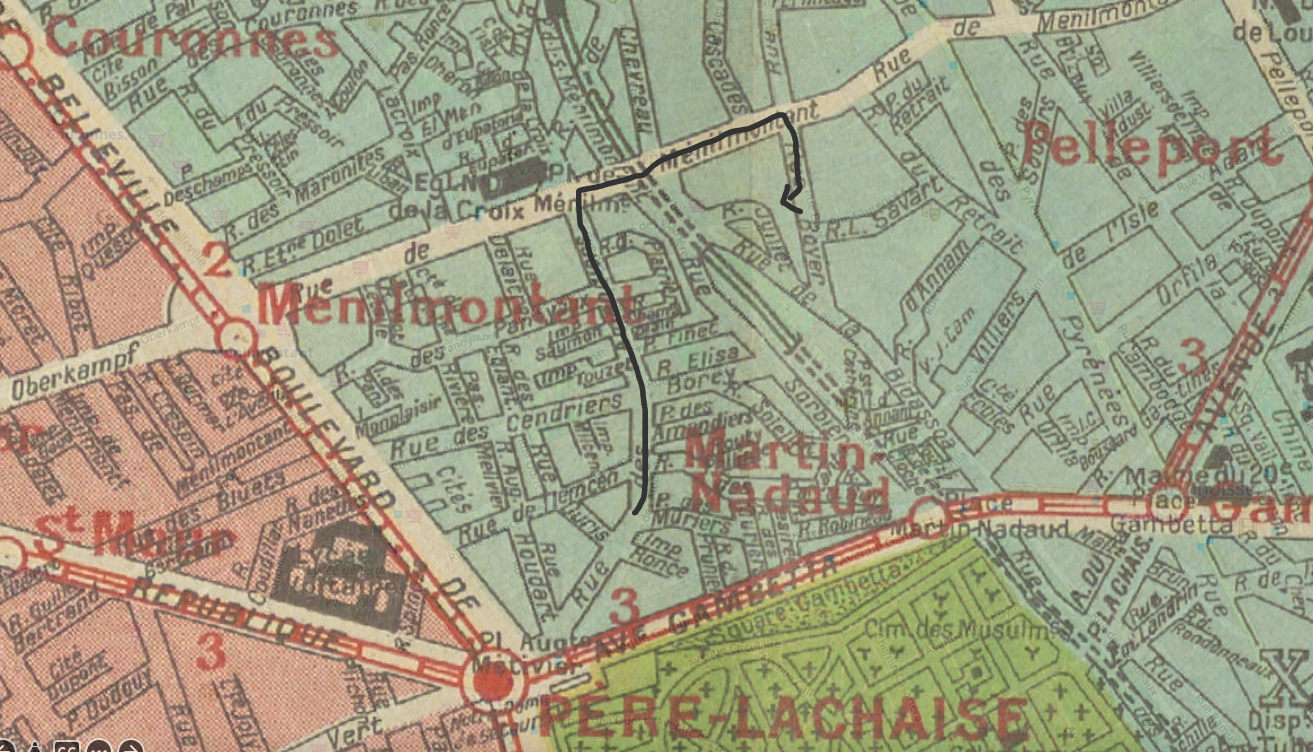
The Psankiewicz family lives at 26 rue Duris in the 20th arrondissement. Abram and Chana emigrated from Poland in the mid-1920s. They met in Paris where Chana and her sister Ruschka had decided to make a stopover before emigrating to the United States with their parents. Each met her future husband there so they stayed in France. Abram and Chana have two girls, Louise and Rachel, who attend the school on rue de Tlemcen at the time of the war.
On May 14, 1941, Abram was a victim of the Green Ticket round-up and sent to the Beaune-la-Rolande camp. On July 16, 1942, French police officers come to arrest Chana and the children. They are taken to the Bellevilloise, from where Chana forces her daughters to escape. A period of wandering follows for Louise and Rachel as they watch their family inevitably vanished.
In 1995, Rachel participates in the Shoah Foundation's initiative and finally tells her story. From that year on, she has never ceased to testify especially in schools. Just like an agile seamstress, she tirelessly mends the holes that punctuate the memory of History.
In 2018, Rachel publishes Nous étions seulement des enfants, which she dedicates to her children and grandchildren. In November 2021, she receives from Serge Klarsfeld the insignia of Officer of the Legion of Honor for her memorial mission in schools. On that day, the mischievous little Rachel made one hell of a mockery of those who wanted to erase her story.
Testimony from Rachel Jedinak
"From that moment on, we were able to tell. Our suffering was recognized. Then, the floodgates that we had kept closed opened one by one. And my past came back to me in successive waves" (Nous étions seulement des enfants, pp. 92).
This is what Rachel writes in her 2018 book entitled We Were Only Children in reference to the historical statement President Jacques Chirac made on Sunday, July 16, 1995.
In the interview Rachel gave for the Shoah Foundation in August 1995, we witness the nascent resurgence of the memories she had buried so deeply over the years. Now that her voice was finally being listened to, she confided both fragments that were well anchored in her memories - her leitmotiv "And I remember" recalling Perec's anaphoric text – as well as the blanks that still obscured her memory at that time. This was only the first wave.
During the twenty years or so that separated the two testimonies, the cathartic backwash of her liberated memory conjured back up places and faces, shed light on moments that had been blurry until then and polished up the details.

